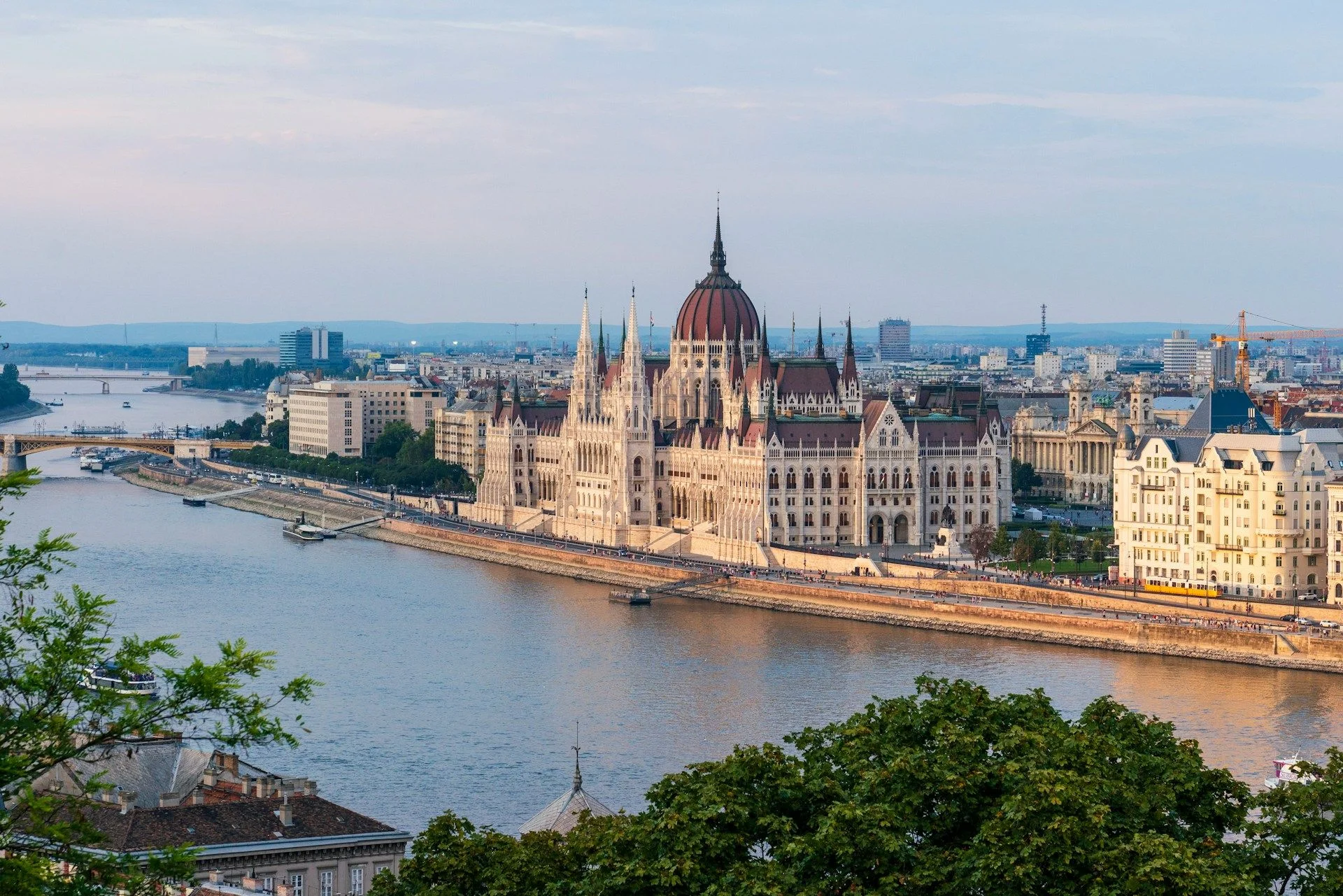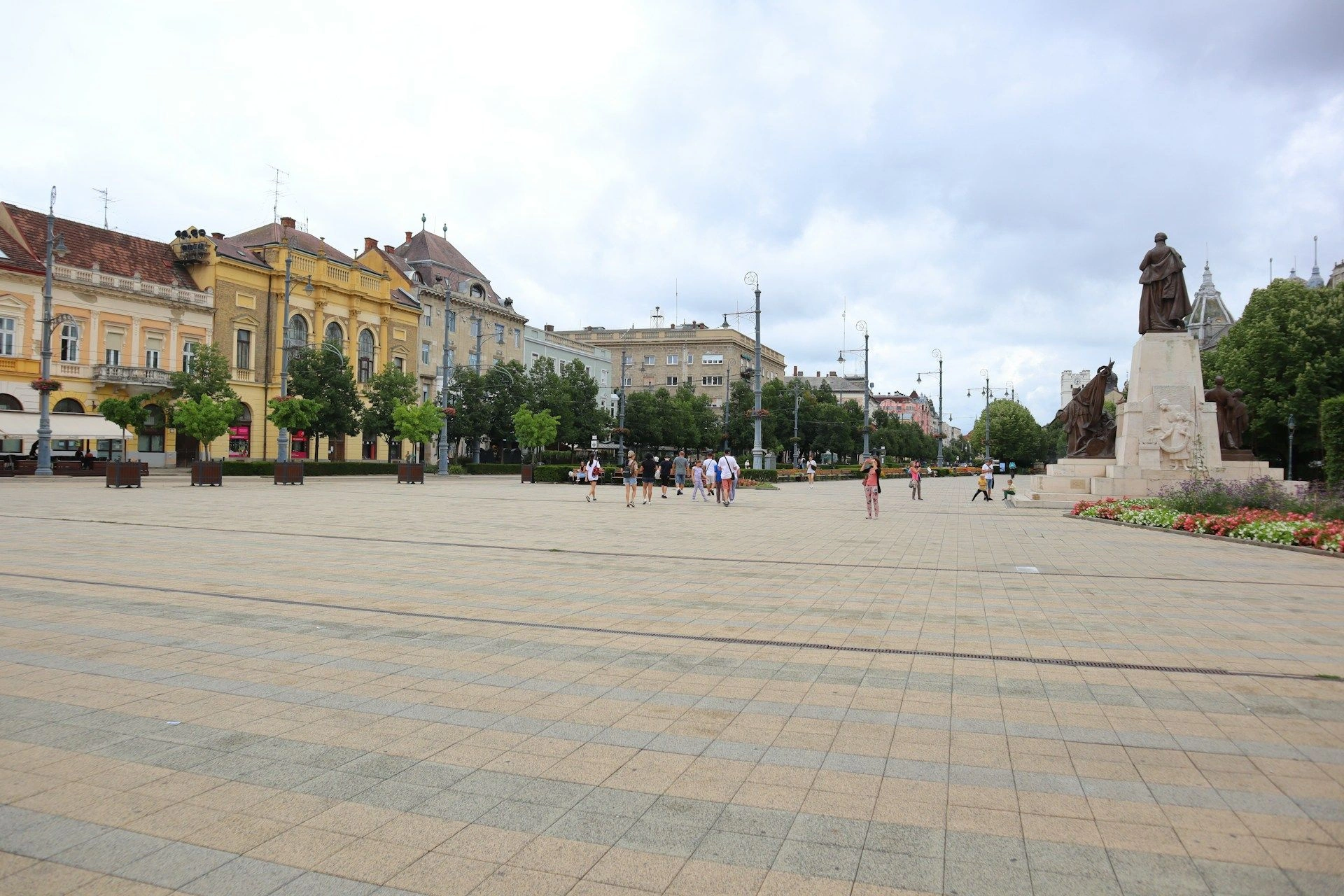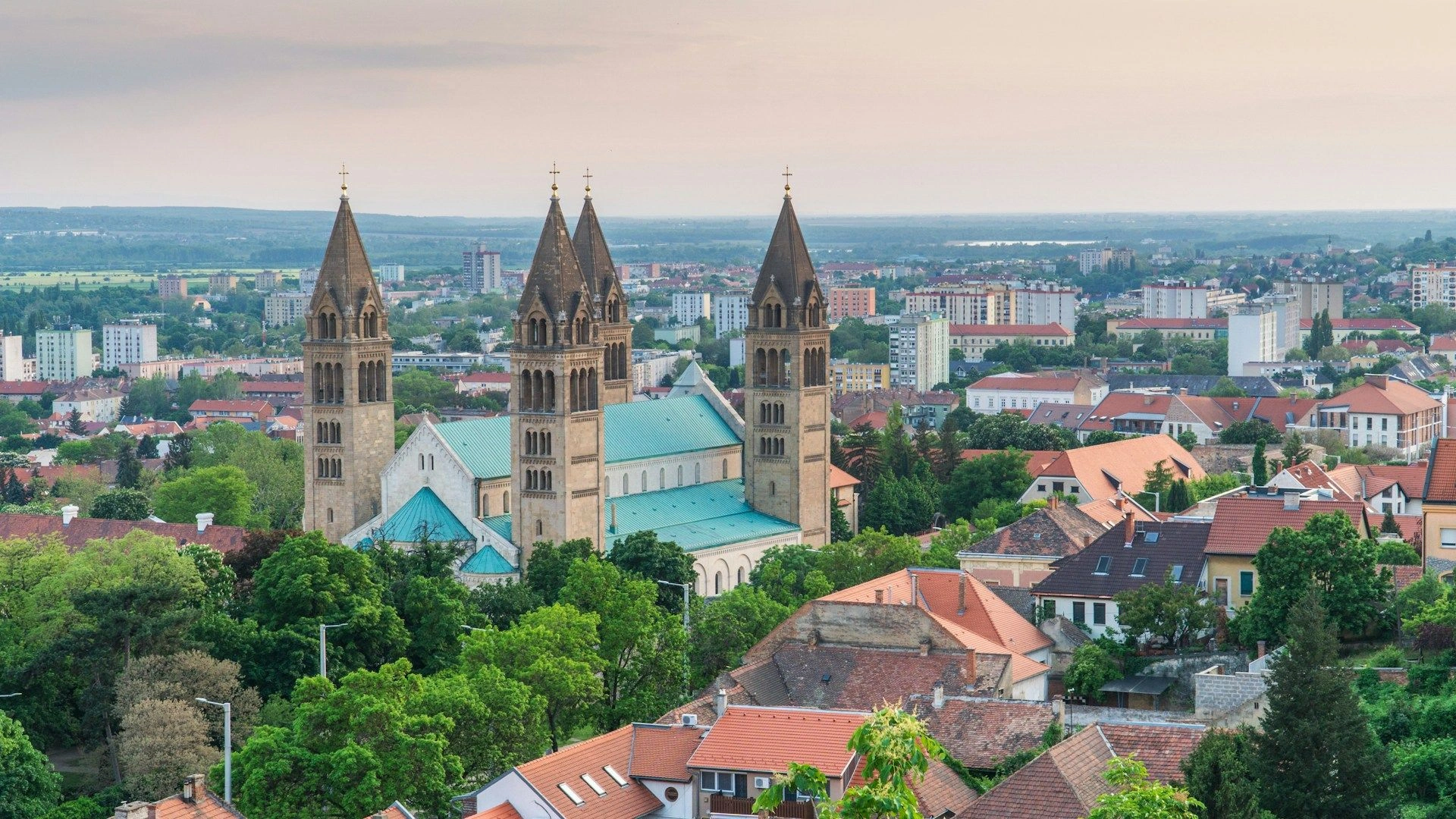Commercial Property Listings in Hungary – Investment OpportunitiesCountry of hot baths, vineyardsand timeless rhythm

Best offers
in Hungary
Benefits of investment in
Hungary real estate
Investment-grade EU capital
Budapest offers a mix of cultural charm, affordability, and strong tourist and student rental demand.
Steady cash flow from varied tenants
Medical tourism, universities, and business centers generate continuous rental interest.
Full ownership without restrictions
Foreign buyers enjoy direct, unrestricted ownership of residential property.
Investment-grade EU capital
Budapest offers a mix of cultural charm, affordability, and strong tourist and student rental demand.
Steady cash flow from varied tenants
Medical tourism, universities, and business centers generate continuous rental interest.
Full ownership without restrictions
Foreign buyers enjoy direct, unrestricted ownership of residential property.

Useful articles
and recommendations from experts
Buy commercial property in Hungary: Europe’s Hidden Gem
Hungary’s strategic location in Central Europe, combined with its robust economic growth and rich cultural heritage, has positioned it as a compelling destination for businesses and investors alike. From historic spa towns to a capital city brimming with modern amenities, Hungary offers a unique mix of tradition and innovation that underpins its expanding commercial real estate landscape. For international buyers looking for commercial property for sale in Hungary, the country’s business-friendly climate and relatively low costs can translate into both attractive entry points and substantial long-term returns.
One of Hungary’s standout advantages is its EU-friendly investment climate, which provides a level of regulatory alignment and stability that appeals to foreign investors. Membership in the European Union not only opens doors to cross-border trade within the bloc, but also helps ensure standardized legal frameworks—factors that reduce potential uncertainties for international property buyers. In addition, Hungary’s economic policies often prioritize foreign direct investment, offering incentives such as tax breaks and simplified procedures for setting up local entities.
With its central position, Hungary is frequently referred to as a gateway to wider European markets. Businesses operating here can leverage efficient transportation links—highways, railroads, and a major international airport in Budapest—to reach a variety of neighboring countries within a few hours. This logistical advantage attracts multinational companies across diverse sectors: manufacturing, automotive, pharmaceuticals, and technology. As a result, competitive real estate prices remain a boon to astute investors, especially compared to more established markets in Western Europe. The relatively moderate cost of acquiring or leasing commercial space can yield higher profit margins or improved cash flow, depending on the chosen asset class.
Tourism also plays a significant role in Hungary’s economic vitality, given its strong tourism industry anchored by thermal baths, cultural festivals, and architectural marvels. Cities like Budapest and Eger attract millions of visitors each year, boosting local retail, hospitality, and entertainment sectors. As these industries expand, so does the demand for well-located commercial properties—hotels, serviced apartments, restaurants, and leisure facilities—spurring development that benefits both domestic and international investors.
Invest in Hungarian commercial Real Estate: Market Drivers and Opportunities
For those seeking to invest in Hungarian real estate, understanding the main market drivers is key. First among them is the growing service sector, which accounts for a significant portion of Hungary’s GDP. Corporate offices, call centers, and IT hubs increasingly dot the business districts of Budapest and other major cities, drawing in a skilled workforce and creating consistent demand for modern, well-equipped commercial spaces.
Another major factor is Hungary’s relative affordability when compared to more established European markets. Low overhead costs, combined with government efforts to attract foreign businesses, enable new investors to find property deals that can offer solid returns on investment—particularly if the properties are managed well and located in areas of high foot traffic or strong corporate presence. The country’s consistent economic growth and stable currency further enhance this appeal, offering a level of reassurance to those wary of potential volatility in emerging markets.
Infrastructure development is also notable. Ongoing upgrades to roads, public transport, and digital connectivity support a business environment where local SMEs and international corporations can flourish. Cities beyond Budapest—such as Debrecen, Szeged, and Győr—are undergoing improvements that encourage urban expansion and diversification, resulting in pockets of commercial opportunity throughout the country. These secondary markets, while smaller in population, often come with competitive real estate prices and can yield higher returns if they experience sustained economic uplift.
The hospitality sector stands out as another promising avenue. Hungary’s tourism has been bolstered by widespread global interest in historical sites, spa culture, and international events (like music festivals and conferences). For commercial property investors, this opens up a range of possibilities—from boutique hotels in renovated historical buildings to new construction projects that cater to a cosmopolitan crowd. By targeting such specialized niches, foreign buyers can differentiate themselves in a market that, while growing, is still ripe for innovative concepts and modern services.
Buy Office Space in Budapest: Capitalizing on High Rental Demand
Budapest, the nation’s capital and economic powerhouse, is often the first port of call for investors aiming to buy office space in Budapest. Home to nearly two million residents in the metropolitan area, the city boasts a thriving commercial scene that caters to multinational corporations, startups, and government agencies. Its blend of historic architecture, trendy neighborhoods, and bustling business districts has cultivated an environment where traditional and cutting-edge ventures coexist, driving high rental demand in Budapest.
The city’s office market is divided into distinct submarkets, each with its own advantages. Central districts like District V (Inner City) are famous for their grand boulevards, neoclassical buildings, and proximity to landmarks such as the Hungarian Parliament and the Danube River. Office spaces in these areas tend to command premium rents, reflecting their prestige and convenient access to public transport. More modern business districts, including Váci Corridor or parts of District XIII, feature contemporary office towers with advanced amenities and larger floor plates, appealing to global corporations and technology firms in search of flexible, scalable workplaces.
Budapest’s competitiveness in this sector is also fueled by a well-educated population. Many Hungarians speak multiple languages, making the city an attractive location for shared service centers and call centers serving customers across Europe. This multilingual workforce has helped Budapest secure a reputation as a regional tech and business hub, prompting employers to seek additional office space—a trend that benefits investors looking for stable, long-term tenants.
As in many large cities, infrastructure can pose challenges. Traffic congestion and limited parking in central zones are ongoing concerns, though the city’s extensive network of trams, buses, and metro lines helps alleviate some of these issues. For foreign buyers, due diligence is crucial when assessing each property’s potential: verifying zoning regulations, checking building permits, and scrutinizing lease agreements all form part of a thorough pre-purchase evaluation. By carefully weighing each factor, investors can maximize the upside of Budapest’s vibrant commercial market and position their holdings to benefit from the city’s steady economic rise.
Hungary Commercial Real Estate Market: Prospects in a Growing Service Sector
Taking a broader view of the Hungary commercial real estate market, it’s clear that the country’s continued integration into European frameworks and global supply chains will likely sustain investor interest for years to come. Future prospects hinge on both macroeconomic stability and ongoing modernization efforts, particularly as Hungary’s government seeks to maintain momentum in attracting foreign capital.
1. Economic Stability
Hungary has enjoyed a relatively steady GDP growth rate, supported by industrial output, tourism, and expanding service industries. While global economic shifts can impact this balance, prudent fiscal policies and diversified export partnerships often insulate the country from severe shocks. This resilience gives commercial property investors confidence, especially when looking beyond Budapest to secondary cities on an upward trajectory.
2. Regulatory Climate
Being part of the European Union obligates Hungary to uphold specific standards in property rights and financial regulations, which helps create a transparent environment for foreign investors. Those considering large-scale acquisitions should still engage local legal experts to navigate potential complexities in zoning laws, property titles, and building codes. However, the underlying structure remains comparatively stable, mirroring broader EU principles.
3. Emerging Niches
While office and retail assets remain stalwarts of the Hungarian market, emerging niches are gaining traction. Logistics, for instance, has garnered attention as companies expand e-commerce operations in Central Europe. Industrial parks near major highways can offer lucrative rental yields due to Hungary’s status as a bridging nation between Western Europe, the Balkans, and beyond. Additionally, specialized sectors like co-working, student housing, and senior living developments are on the rise, catering to shifting demographic and cultural trends.
4. Market Accessibility
Even though Hungary is an established European nation, many areas outside the capital still harbor untapped potential. Local municipalities often encourage development through incentives, aiming to bolster regional job creation. With careful planning, investors can capitalize on these opportunities early, acquiring properties at advantageous rates and contributing to the local economy.
Overall, Hungary’s attractiveness as a real estate destination lies in its balance of economic growth, cultural richness, and pro-investment policies. By focusing on high-demand segments—whether retail, office, hospitality, or industrial—foreign buyers can unlock substantial value in a market that has yet to reach the saturation points seen in Western Europe. Indeed, Hungary’s status among commercial properties in Central Europe continues to rise, offering a dependable mix of stability, opportunity, and future-proof prospects.
International investors who seek commercial property for sale in Hungary will find that each region within the country has its own charm and commercial viability. From buying office space in Budapest to exploring emerging markets in Debrecen or Szeged, Hungary delivers competitive real estate prices and a bustling economy anchored by a growing service sector. Underpinned by an EU-friendly investment climate and a strong tourism industry, the Hungary commercial real estate market stands poised for ongoing expansion. With thorough research, local partnerships, and a well-rounded approach to portfolio diversification, investing in Hungarian real estate can yield compelling returns and open doors to the broader European stage.







